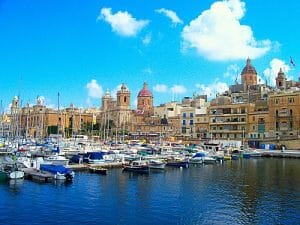Malta In The Med: Home To Property Tax Breaks

Having registered the highest GDP growth rate in Europe in 2015 and the fourth lowest unemployment rate in the EU, Malta is making a name for itself which extends far beyond its reputation for sandy beaches, clear waters and lots of sunshine.
Malta is perceived as an attractive place to take up residence or retire, especially in light of its geographic location, resilient economy, benign taxation regime and immigration programmes, say Karl Cini and Antoinette Scerri of accountants Nexia BT.
The island offers a range of benefits and extensive tax programmes aimed at attracting foreign expatriates and ‘third country nationals’ (non-EU/EEA nationals, excluding Swiss citizens).
Malta’s Individual Investor Programme (IIP) allows for the acquisition of Maltese citizenship by acquiring a title of ownership or lease over a residential property in Malta and making investments in the country. The main applicant’s spouse, dependent children under the age of 27, as well as dependent parents and grandparents over the age of 55, may be included in the application.
The Malta Residence & Visa Programme (MRVP) is open to third country nationals who wish to obtain an indefinite Maltese residence permit for themselves and their dependents. The process spans a few months and involves acquiring a title of ownership or lease over a residential property in Malta, and making investments in the country. Successful applicants will enjoy the right to reside, settle and stay indefinitely in Malta, as well as being able to take advantage of freedom of movement within the Schengen Area.
Malta’s Global Residence Programme (GRP) is designed to attract third country nationals who wish to purchase or lease high value property in Malta and who may then benefit from a Maltese residence permit under a separate application. The Residence Programme Rules (RPR) is a similar tax residency programme, but is aimed at attracting EU, EEA and Swiss nationals.
Those who have been granted special tax status in accordance with the GRP or the RPR are subject to a 15% beneficial tax rate on income received in Malta from foreign sources, with the possibility of claiming double tax relief. In order to maintain the special tax status, residence permit holders may not become permanent or long-term residents of Malta and must not spend more than 183 days in any other jurisdiction.
Buying a home in Malta is made easy by the short distances – the island is only 30 kilometres at its widest – and the fact that English is an official language, says property expert Christopher Nye. Estate agents speak English, newspaper ads and many property websites are in English too – try maltaproperty.com
Malta is a property loving nation – 80% of people own. Estate agents don’t need to be licensed, although there is a Federation of Estate Agents and there are moves to regulate agents. Instead of an agent you might use a sensar, a freelance property finder who takes a cut from the purchase price for finding and facilitating the sale.
You will often see the phrase ‘house of character’”. This means an older house, usually in the traditional gold-coloured stone. They’re beautiful when renovated and are popular with expats. For apartments, some upmarket developments have gone up close to Valletta in recent years, particularly Pendergardens, Fort Cambridge and Tigne Point. There are also rural properties available with short commutes into town. Country property details may refer to land areas in tumolo or tumoli, which are 5/18 of an acre.
People from the European Union are allowed to live, own property and work in Malta. While they are allowed to buy a home anywhere on the islands of Malta and Gozo to use as a main residence, for additional or investment properties they are limited to a Special Designated Area (SDA), which are usually new property developments. There are restrictions on renting out your home when you’re not there too, so ensure you get this checked out before signing anything.
Non-EU residents must get an Acquisition of Immoveable Property (AIP) permit to buy property. There are also schemes for obtaining residency in return for investing in property, the so-called ‘golden visas’ as detailed above.
Malta uses a notary system for buying property. The buyer has the right to choose the notary, and the notary’s first job will be to prepare the Promise of Sale agreement, or konvenju, a binding contract. At the same time the buyer pays a deposit of 10%, plus 1% of the selling price as a down payment of the eventual 5% stamp duty. The konvenju includes the price, what that covers, any work required before completion, the payment schedule and date for completion.